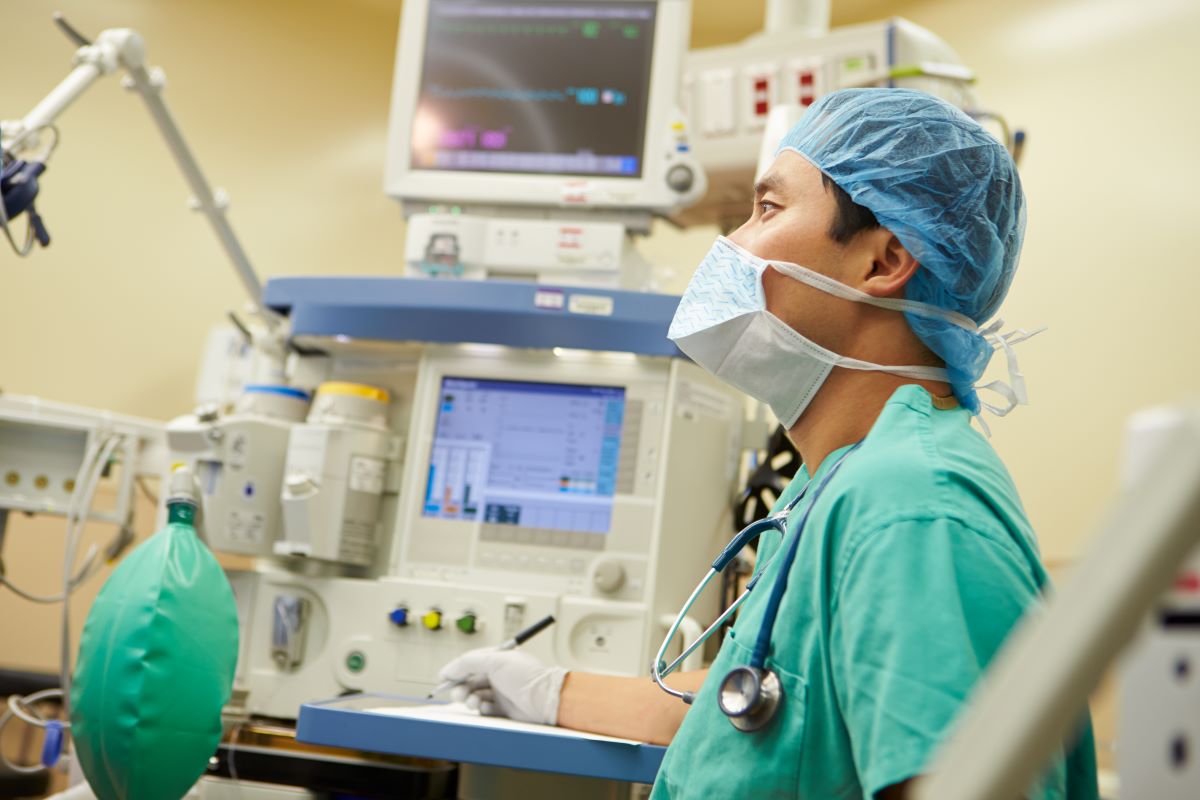Top 7 Nurse Anesthetist Interview Questions to Ask

Trying to hire an exceptional nurse anesthetist? Interview questions can be the key to pinpointing and retaining the ideal candidate. After all, onboarding is a wasted effort if the match between the new employee and the organization is poor.
Certified registered nurse anesthetists (CRNAs) are in high demand in the healthcare industry, but the costs of turnover are also high. It’s estimated that replacement costs for a CRNA are as high as two times their annual salary. Retention is a critical element of staffing.
In this article, we’ll take a look at seven nurse anesthetist interview questions to ask your next candidate. We’ll discuss the rationale behind each question and cover what to look for in the answers to help spot a good fit for your team with strong clinical skills.
Key CRNA Interview Questions to Ask
Job interviews are often time-intensive endeavors for leadership teams, especially on top of already packed work schedules. It’s important to maximize each interview by asking questions that identify the values and strengths of the applicant. Here are a few sample CRNA questions to help you pick out the strongest candidate for your organization.
1. Before a procedure, your patient expresses fear of anesthesia. How do you respond?
Caring for patients doesn’t stop with their physical state, it also includes responding to emotional and psychological needs. Undergoing anesthesia, or any procedure that requires anesthesia, can be a stressful experience. It’s crucial for a CRNA to have the ability to be compassionate and communicate with patients in kind, empathetic ways.
Top answers:
- Demonstrate strong rapport-building skills
- Showcase the candidate’s ability to validate patient concerns, establishing a supportive and safe environment
- Illustrate emotional intelligence and strong interpersonal skills
2. Tell me about a time when you made a clinical error. How did you respond and what did you take away from the experience?
Mistakes happen to everyone, including experienced, highly skilled, healthcare professionals. Even in surgical settings, where the stakes are high, people can make errors. It’s crucial to be able to recognize — and correct — mistakes, reflect on the experience, and use it as a growth opportunity. Look for candidates who embrace a culture of safety and advocate for patient safety.
Top answers:
- Are honest and candid
- Show the candidate takes responsibility for their actions and reflects on ways to improve their performance
- Highlight critical thinking and the ability to recognize and fix errors quickly
- Identify steps the candidate took to prevent the error from happening again (e.g., incident reporting, process improvement, safety initiative, practice change, or education)
3. Describe a complicated case you were involved with. How did you handle the situation and resolve challenges?
Clinical CRNA interview questions, like this one, allow the candidate to showcase their clinical expertise. A candidate with a lot of experience will have a very different answer than a new graduate. It’s an excellent opportunity to dive into the more technical aspects of the job and understand the scope of the applicant’s previous experiences.
Top answers:
- Reveal where the clinician is on the spectrum from novice to expert CRNA
- Emphasize the candidate’s critical thinking and problem-solving skills
- Demonstrate a strong understanding of pharmacology, pathophysiology, and safe patient monitoring
4. How do you manage stress while working in high-pressure environments?
Working in the surgical/procedural setting with medically complex, high-acuity patients is intense and can lead to burnout. In fact, job stress is one of the leading reasons CRNAs leave anesthesia practice. Qualified candidates will be able to describe the practices they use to manage stress in healthy, productive ways — both inside and outside of the clinical space.
Top answers:
- Depict effective coping skills
- Show how the candidate practices self-care
- Will often give you insights into their communication skills and self-awareness
5. Describe a time when you and a colleague had opposing views. How did you resolve the conflict?
Disagreements are a completely normal part of teamwork and group dynamics. Working through differences and finding common ground is vital for building positive relationships. Particularly in the clinical setting, where patient safety is at risk, people must be empowered to speak up, raise concerns, and express opposing viewpoints. A patient’s life might depend on it.
Top answers:
- Focus on professional communication and strong conflict-resolution skills
- Prioritize patient care and safety
- Demonstrate an open, respectful approach toward others
6. How do you stay up to date with the current research and best practices?
For healthcare professionals, education doesn’t stop after graduation. As lifelong learners, clinicians must be committed to continuing education and have a growth mindset. Qualified candidates are passionate about staying current and value developments in evidence-based practice.
Top answers:
- Point to specific journals, conferences, and professional organizations
- Show the ability to adapt to change and embrace advances in medicine
7. What do you enjoy most about being a nurse anesthetist?
Interview questions like this might seem basic, but the answer to this question can tell you a lot about the motivations and personality of the candidate. Knowing what brings joy to their work is important for understanding the person’s passions and approach to being a CRNA.
Top answers:
- Are unique — everyone is different
- Explain what parts of the job bring fulfillment
- Illustrate the candidate’s values and beliefs
Find the Right Staff at the Right Time by Partnering With Us
We’ve taken a look at seven nurse anesthetist interview questions to help find the ideal addition to your team. Need some help from a trusted partner? Let IntelyCare staff your facility with reliable, highly qualified nursing professionals.


